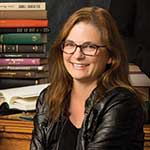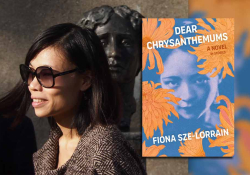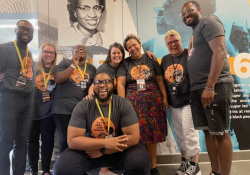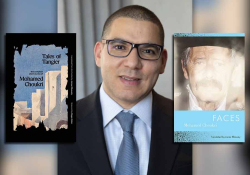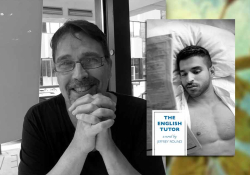5 Questions for Claire Jia
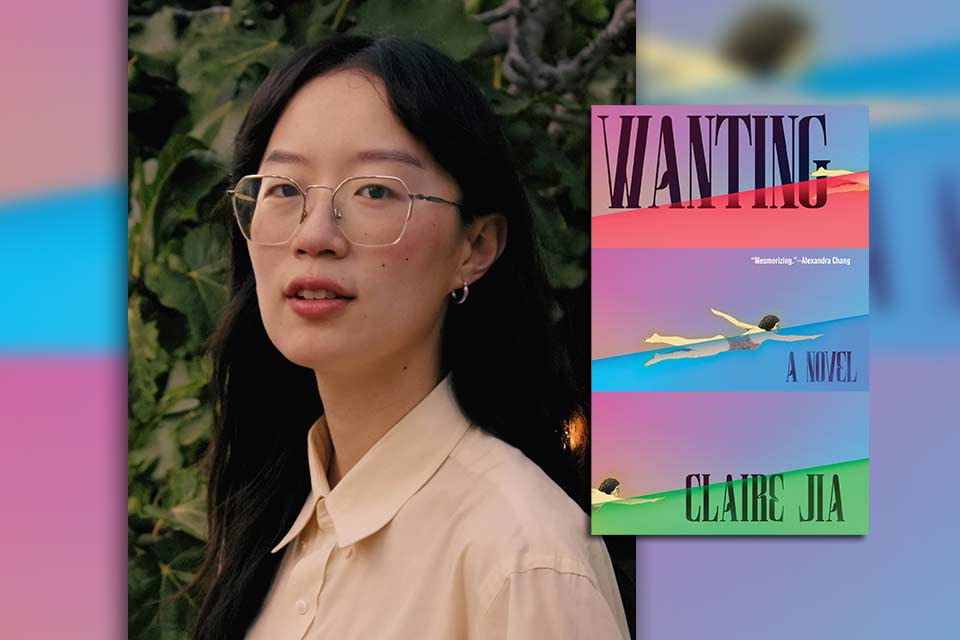
Claire Jia’s debut novel, Wanting, was published by Tin House on July 1. It tells the story of a rejuvenated friendship between two young women, Lian and Wenyu, who reconnect in Beijing years after Wenyu left for the US, revisiting old haunts while bonding over shared secrets. Meanwhile, a middle-aged couple faces a crumbling marriage. Characters grapple with whether to stay in Beijing or pursue a life in the US in the novel, which builds to a shared, dramatic inflection point.
Q: Wanting is a novel about, among other things, friendship, particularly that of Lian and Wenyu. Wenyu’s influence on Lian changed Lian: as a teen, Lian was less rigid when under Wenyu’s influence, and as an adult, their shared secrets freed Lian to question her romantic relationship. How have your friendships influenced you?
A: Oh, in so many important ways. I’ve experienced versions of Lian and Wenyu’s friendship; I’ve been the more rigid friend, the less cool and less glittery friend, both basking in the glow of my friend’s light and also wanting to steal some for myself. But Lian and Wenyu’s friendship is only partially about envy; I’d argue it’s more about the ecstasy of friendship (of course envy and ecstasy may be two sides of the same coin). Really, I wrote this book to capture the euphoric feeling of debriefing a bad date with your best friends the morning after. I go on dates almost expressly for this feeling. Similarly, like Lian and Wenyu, I dread what happens on the other side of a happy ending. What happens to those wondrous debriefs?
Q: Wanting paints a rich and detailed picture of Beijing. At one point Chen, a builder, looks out on the suburban sprawl and thinks about how he is helping build “a new sort of China.” What is this new China?
A: “A new China” is a difficult thing to pin down, because it’s changing so rapidly, but mainly, the new China is capitalist China. I’ve gotten the privilege of going back to China every three years since I was a baby, and I’ve seen it evolve rapidly. When I first visited Beijing, there was a sense that it was impressive that I lived in the United States. I remember enrolling in third grade at the local elementary school and being the most popular girl in school simply because I was American. Now, people are no longer impressed when I tell them I’m from the US.
Since my first trip to Beijing as a baby, it has tripled its population. (For context, Beijing’s population in 1995 was about 8 million, the population of New York City today.) Its subway system has sprawled sleekly across four, five, and now six “ring road” highways. People stopped paying with credit cards ten years ago; meanwhile, I’m still dropping and losing my plastic credit card on bar floors all across the States. I can get rice noodles, bibimbap, cheeseburgers, or tiramisu delivered to my door in ten minutes, twenty-four hours a day.
Capitalism is building this new China, and building it quickly. In many ways it’s terrifying (given my thoughts on capitalism, which are extremely unfavorable), but it shows that Beijing, and China at large, is a constantly evolving machine—a force to be reckoned with.
Q: What do your favorite stories do? Whose work has been most essential to your development as a writer?
A: I love stories with a strong sense of voice. I love annoying, petty, jealous, insecure characters. I love anything that surprises me, especially if the surprise was hiding in plain sight. Lorrie Moore taught me that the best fiction is funny. Xu Zechen is my new obsession; his collection Beijing Sprawl is perfect. His fiction takes us to the streets of Beijing, uncovering harrowing stories of struggle told through the lens of scrappy narrators who observe the brutality with the curious detachment that can only happen when life is just that brutal, every day. He is the master of that pit of dread in your stomach, with a sprinkle of hope that it might turn out differently next time.
I love annoying, petty, jealous, insecure characters. I love anything that surprises me, especially if the surprise was hiding in plain sight.
Q: What else has shaped you as a storyteller?
A: My parents were never strict about anything with one exception: my mom really wanted me to be good at Chinese. Truly, she really didn’t care if I was good at anything else. She and my grandmothers taught my sister and me the language growing up; we’d go back to China and sit in my grandparents’ humid bedroom, fanning ourselves as we recited Tang dynasty era poetry for three hours a day, every day. I grew up on a heavy diet of Chinese TV dramas (with revolving and increasingly less child-appropriate subject matters: Qing dynasty palace intrigue, the Chinese Civil War, Japanese occupation, etc.).
Of course, this fostered in me a deep passion for Chinese history and culture and Beijing, and that’s what I love writing about today. It was also incredible to grow up watching people who looked like me; the characters in the dramas I watched didn’t struggle with the same feelings I did of not belonging in a white America (they were struggling with other problems, like Japanese occupation and the emperor beheading their whole family). That is one of the big reasons I set my novel in Beijing, where my characters could grapple with feelings outside of what is traditionally expected from immigrant/POC narratives.
Right now I’m loving nonfiction and hybrid writing, like Sheila Heti’s Alphabetical Diaries, or Tavi Gevinson’s zine about Taylor Swift, Fan Fiction.
Q: What are you most excited about reading at the moment?
A: I’ve been in a bit of a fiction rut lately. Maybe it’s because I burned my brain out writing a novel for a whole honking decade. Or maybe it’s because I finally read The Picture of Dorian Gray this year for the first time ever, and it was so good it ruined novels for me. Right now I’m loving nonfiction and hybrid writing, like Sheila Heti’s Alphabetical Diaries or Tavi Gevinson’s zine about Taylor Swift, Fan Fiction, which is kind of fiction, kind of nonfiction, and maybe the best thing I’ve read in a year. And also very funny! Finally, not sure if this is sacrilegious for a novelist to say, but I am obsessed with reading Substacks and email newsletters. Hunter Harris’s Substack, Hung Up, is my Bible. Any friend that has a Substack; I’ll read it. Is this me possibly developing a parasocial relationship with my own friends? Maybe.
Claire Jia is a writer from the suburbs of Chicago. Her work has appeared in the New York Times “Modern Love” column, The Rumpus, Reductress, and more. She writes for television and video games, including the 2024 Peabody Award–winning We Are OFK. Her family is from Beijing, and nothing puts her at peace like haggling in a chaotic Beijing marketplace. She lives in Los Angeles with her friends. Wanting is her debut novel.
